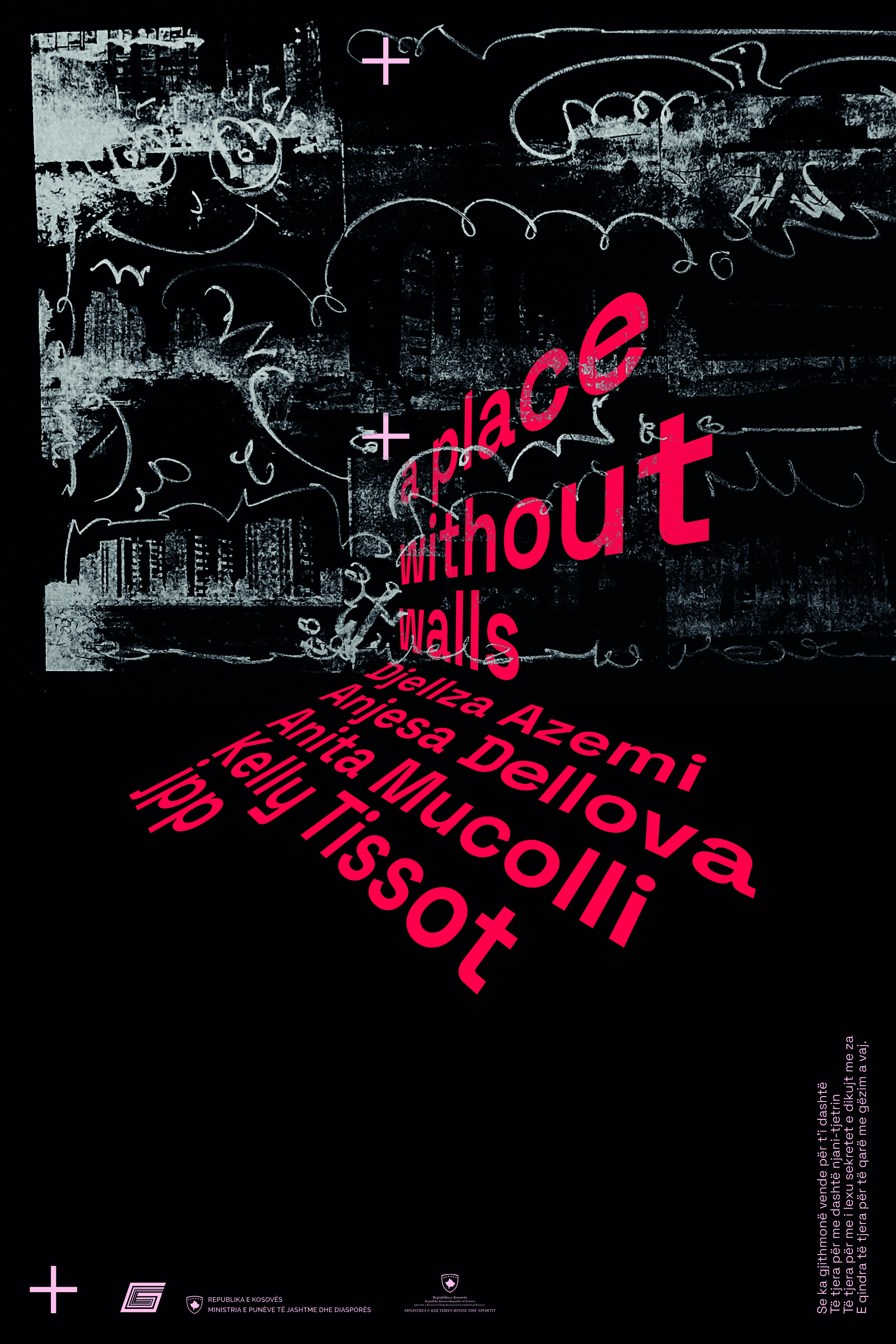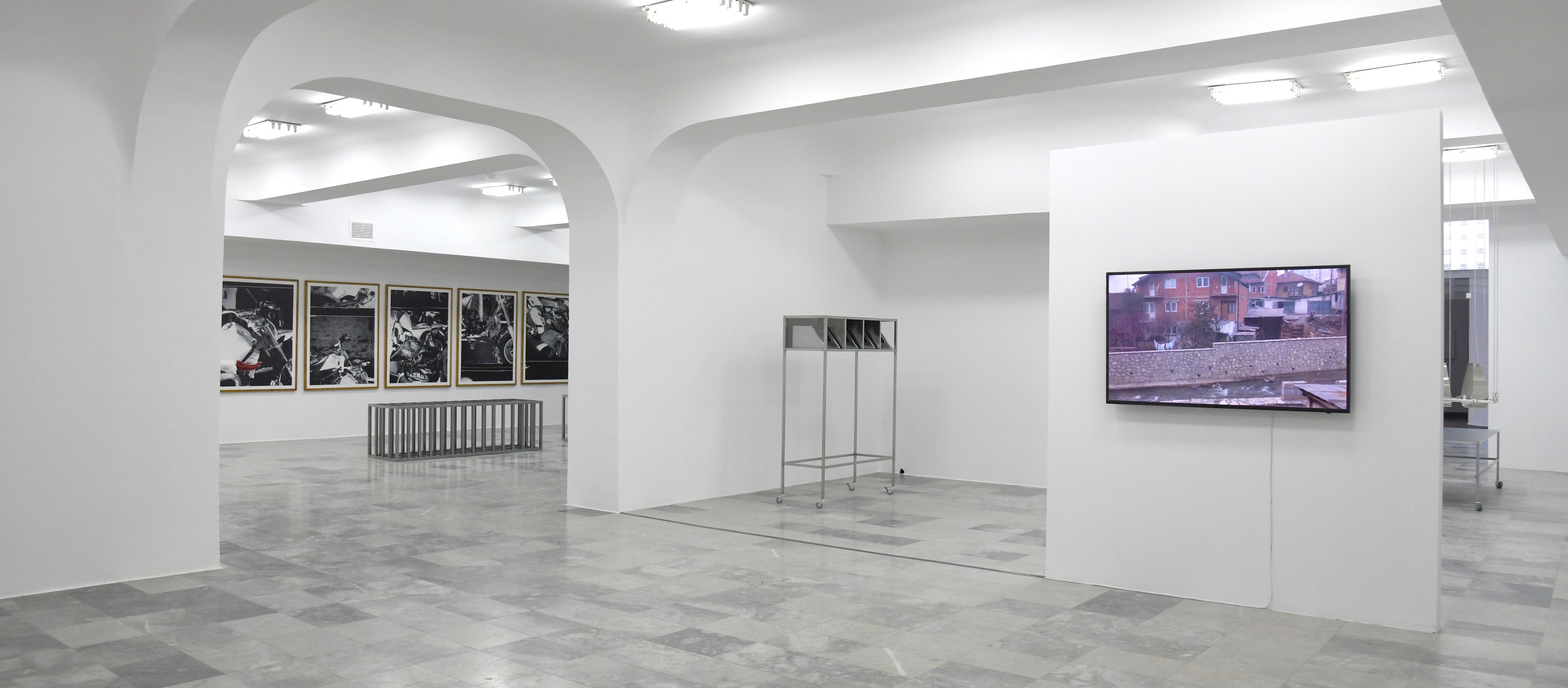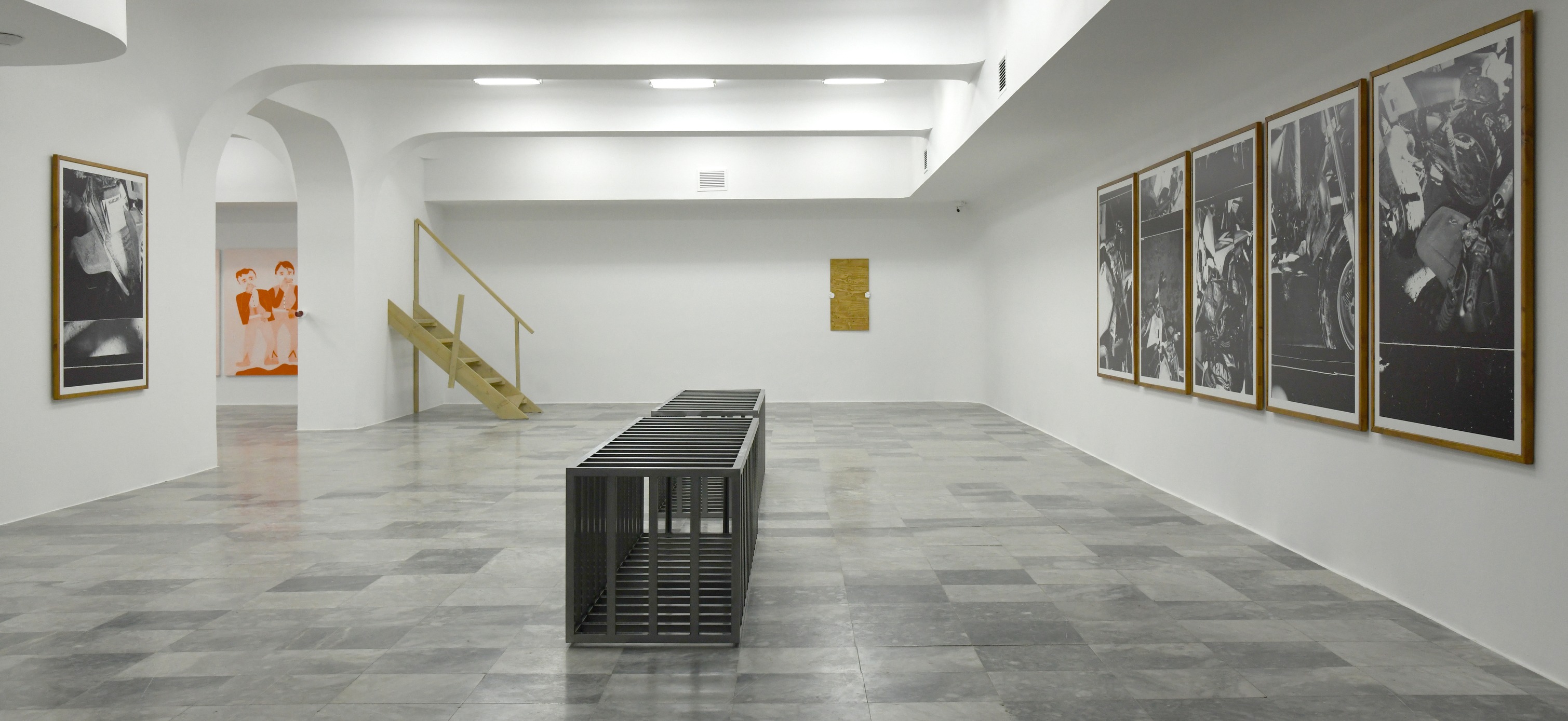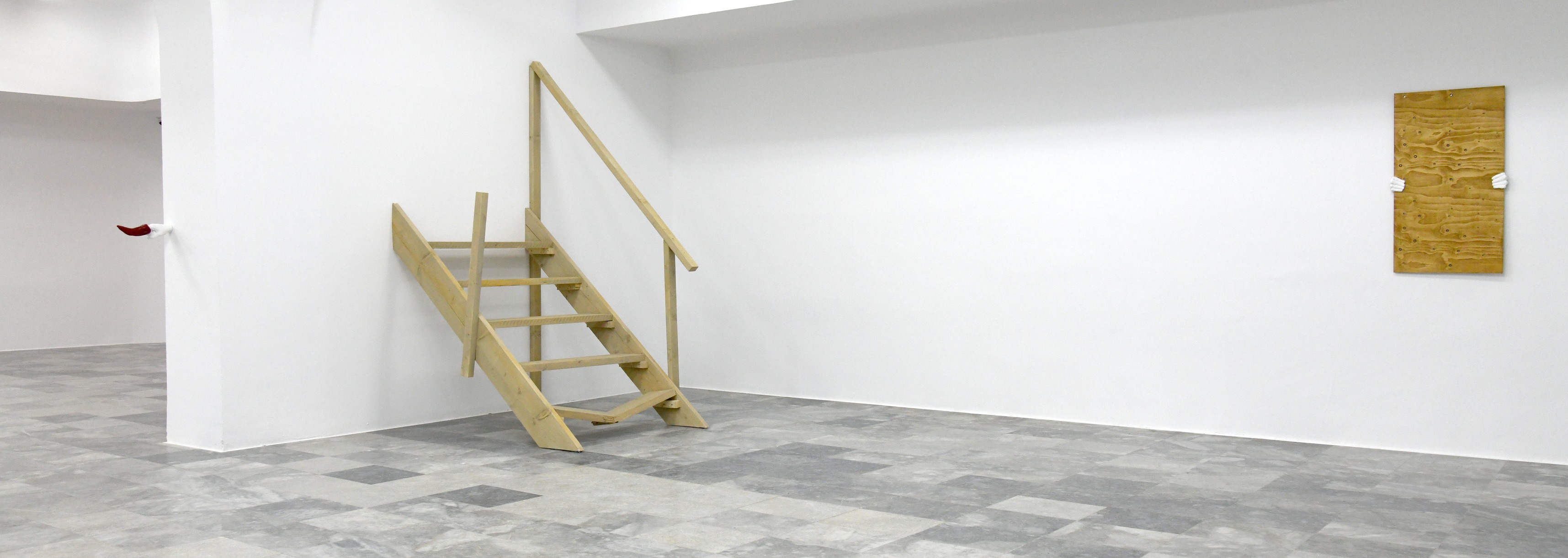a place without walls
Shkelqim Qestaj
Because there are always those places to love.
Others for loving each other.
Others for reading one's secrets aloud.
And a hundred to cry with joy or sadness.
The work of Djellza Azemi explores the poetic dimension of home and shelter through the prism of identity. With sculpture and found objects, she constructs relationships and narratives around the notions of transmission, tradition and transgression. Azemi takes objects and gives them a new function/dynamic. Their transportation to other spaces such as an exhibition space is so precise that it becomes so clear. Djellza Azemi lives and works in Lausanne (CH).
Anjesa Dellova experiments with several media such as photography, video and painting. Photography remains a very important tool in the research for her future paintings in which she seeks above all to capture the fragility and strangeness of the face. The characters she paints have a deformed face and body, and these two elements even seem dis- connected, as if they no longer belong to each other. The faces are no longer reduced to their plastic form, neither to their eyes, nor to their nose, nor to their mouth. These naked faces are vulnerable and poor. The space of face to face, from then on we find ourselves facing flattened forms that float. «The appearance of others that always escapes me and that I can never fully grasp. Thus the face is no longer limited by its features, it refuses to be contained (Emmanuel Levinas). And in this face-to-face encounter, there is always something disturbing.» She works and lives in Lausanne (CH).
The work of Anita Mucolli has always been interested in space. Space not only understood as a physical space, but as an anthropological dimension that ties our cultural concepts of time to the spaces we like, the spaces we imagine, and those spaces we inhabit through the many fantasies we produce through literature, cinema, comics, social media, etc. Space has many functions and a very important one is not only to be in but to collectively rehearse our past, our present, and our future. That’s the reason why the Ancient Greeks’ idea of collective memory was based on the active production of spaces where rituals and narrative symbols could appear in front of the community. We could even say that every space has, therefore, a cinematic and storytelling potential. The storytelling dimension refers to how spaces make us talk, make us collect memories, and share them with others. That is probably the reason why former works of Anita Mucolli were room replicas – spaces identical to spaces we know. In doing so, she stressed her interest in memory, in all the simple actions that a space amplifies but also in sculpture and the power to still create something different out of elements that look similar to those we encounter in our everyday life. Mucolli works and lives in Basel (CH).
Growing up in the French countryside, Kelly Tissot finds all the melancholy, boredom and illumination of suburban non-spaces. There is a dreamlike atmosphere in these works, which capture a reality of waiting, suspended, awaiting an event. There is something austere about these large black-and-white images. The photographs document a still, threatening, potentially hostile world. The objects are like sleeping wild animals that can wake up at any moment. Tissot tracks down the hidden structures and animated things, the charged signs that lie beneath the material landscape. His works, like mute ghosts or silent visions, cast flashes of light - flashes of darkness - on the contradictory and shattered dimension of a divided culture, connecting us to invisible affects so that we can face a damaged world. Tissot works and lives in Basel (CH).
jpp (Xheneta Imeri) works with text and words through sound installations, videos and publications. Everyday life is the primary source of her work and she flushes out the non-events that punctuate it. Always anchored in a perspective of questioning the relationships of domination, the stories written and told by Imeri are as many ways of theorising the everyday and apprehending the intimate as eminently political. Her recent projects continue to reflect a deep interest in and work on the languages of love. Xheneta Imeri lives and works in Geneva (CH).



